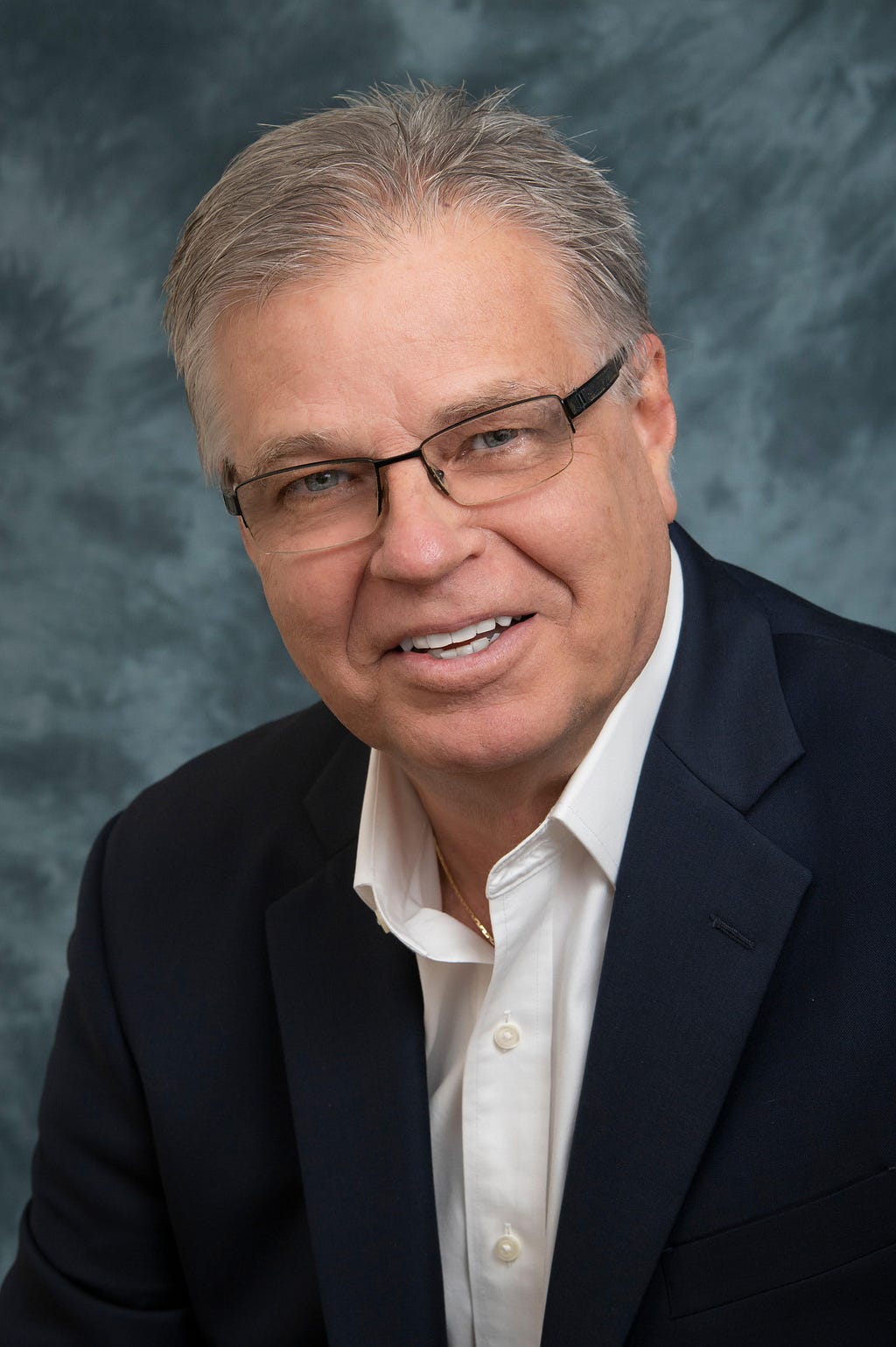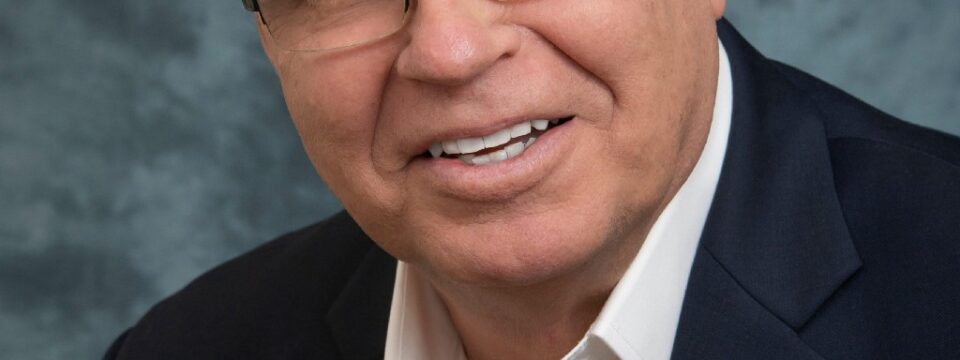
After spending thousands of hours witnessing the multiple stresses people are going through, I decided someone needed to introduce a strong measure of common sense into the equation. I wanted to give readers a sense of hope and personal empowerment so they wouldn’t believe they were helpless.
As a part of our series about Mental Health Champions helping to promote mental wellness, I had the pleasure to interview Dr. Michael Adamse.
Michael Adamse, Ph.D. is a clinical psychologist and mental health expert with over 90 thousand hours of direct patient care. Trained at Yale University and the University of Miami, he has participated in over 300 media interviews across all domains. Make America Sane Again is his fourth book.
Link: https://makeamericasaneagain.net
Thank you so much for doing this with us! Before we dig in, our readers would like to get to know you a bit. Can you tell us a bit about how you grew up?
I was born in Sweden to Dutch parents and came to the U.S. through Ellis Island, N.Y. on the very last day they processed immigrants. My parents had endured five years of Nazi occupation and were grateful to come to America. My siblings and I grew up on a farm where we learned the value of hard work, cooperation, and the magic of nature’s cycles. Upon reflection, it seemed like a far simpler time to grow up.
You are currently leading a social impact organization that is helping to promote mental wellness. Can you tell us a bit about what you or your organization are trying to address?
I’m a psychologist that has been in private practice for over forty years. My most recent book addresses the major psychological issues facing Americans today and what to do about it.
Can you tell us the backstory about what inspired you to originally feel passionate about this cause?
After spending thousands of hours witnessing the multiple stresses people are going through, I decided someone needed to introduce a strong measure of common sense into the equation. I wanted to give readers a sense of hope and personal empowerment so they wouldn’t believe they were helpless.
Many of us have ideas, dreams, and passions, but never manifest them. They don’t get up and just do it. But you did. Was there an “Aha Moment” that made you decide that you were actually going to step up and do it? What was that final trigger?
Yes. I realized that many Americans are suffering from a kind of mass hypnosis. When we’re overwhelmed with stress and fatigued, we’re most susceptible to suggestion. The endless barrage of negative news undermines reason and leads to polarized thinking. An index of intelligence is the ability to understand more than one side of an issue at the same time. That ability is sorely lacking in contemporary America. I also wanted to help people to understand the psychological principles that operate within us, often on an unconscious level. My belief is that knowledge is the only way to appreciate the forces influencing us. A more sophisticated approach to the subject of what is affecting America’s mental health was needed. For example, personality is a powerful mediator when it comes to how stress is managed. Not everyone copes in the same way. Some people are by nature, or nurture, optimistic so no matter what the stressor, they manage to deal with it in a positive way. Pessimistic individuals, on the other hand, tend to hyperfocus on the negative aspects of any issue. Who would you think fares better? In my experience, optimists are realists who understand that the proverbial cup half empty analogy is flawed. They fully understand that life has its many challenges, so they choose to keep their expectations in line with reality. In that regard, their cups are always full.
Can you share the most interesting story that happened to you since you began leading your company or organization?
Every single patient represents an interesting story. I like to say that there are no boring stories, only boring storytellers.
None of us can be successful without some help along the way. Did you have mentors or cheerleaders who helped you to succeed? Can you tell us a story about their influence?
My wife is my thought partner and greatest supporter. Her knowledge in digital marketing has been invaluable. She’s brilliant. We have some rituals. Wine night on Fridays is for exchanging ideas and in the morning, when our hectic schedules permit, we have ‘coffee talk’ where we practice the art of conversation, which is at risk of becoming lost in our digital world.
According to Mental Health America’s report, over 44 million Americans have a mental health condition. Yet there’s still a stigma about mental illness. Can you share a few reasons you think this is so?
That stigma is far less than it used to be. Still, there are those who might describe someone who is suffering from mental illness as ‘crazy.’ That’s simply a reflection of an ignorant mind. Early mental health education in the classroom is a good way to teach children that well-being also involves the mind.
In your experience, what should a) individuals b) society, and c) the government do to better support people suffering from mental illness?
The best predictor on how someone with weather life’s challenges is the degree of social support they receive. That being said, seek out help, provide support to others and above all, practice kindness. Society needs to reinforce the importance of faith and values as these provide a solid foundation for mental well-being. Tolerance towards others who are different than us has always been a cherished American value. Since social isolation is a predictor of poorer psychological functioning, society needs to prioritize the concept of ‘no person left behind.’ Homelessness is a national disgrace that can be managed through a nationally scaled program that provides basic human needs of food, clothing, and shelter in exchange for work that enhances self-esteem. The government should focus on evidence-based interventions that emphasize preventative care. There needs to be an aggressive policy to address addictions. As an example, the fentanyl epidemic claims over 100 thousand lives each year. Addicts should be committed to a six-month program that emphasizes personal responsibility. We involuntarily commit individuals who are suicidal to treatment. I don’t know a single family member whose loved one is addicted who would oppose such a measure. Six months is generally the period it takes to fully reset an addict’s brain. It’s not rocket science, but it does require common sense.

What are your 5 strategies you use to promote your own wellbeing and mental wellness? Can you please give a story or example for each.
- Exercise 30 minutes a day. I decided to create a bond between my running shoes and the road.
- Spend as much time as possible in natural settings. I find the healing power of nature is unmatched.
- I keep my exposure to the news to an absolute minimum. As a psychologist, I am aware of the profound difference between actual news reporting and propaganda. Much of what we’re exposed to is opinion.
- I love to cook when I can. I learned that simple dishes prepared creatively can make me seem like a chef.
- I read an inspirational thought for the day. It sets the tone for what’s ahead. My work is very demanding, so it helps to stay in communion with my higher spiritual self.
What are your favorite books, podcasts, or resources that inspire you to be a mental health champion?
Jesus Calling by Sarah Young and Mindfulness for Beginners by Jon Kabat-Zinn
If you could tell other people one thing about why they should consider making a positive impact on our environment or society, like you, what would you tell them?
Imagine America is like a human body. Each person is a cell in that body. Do you want to be an inflammatory cell that produces stress through negative messaging, or do you want to be like a t-cell that fights inflammation? Negativity feeds on itself. Try and make yourself into someone who spreads positive energy to others. It’s desperately needed. We can’t make America sane again on our own but we can empower ourselves.
How can our readers follow you online?
At my book website for Make America Sane Again
This was very meaningful, thank you so much. We wish you only continued success on your great work!
Thank you for this opportunity to share my story and my work.
Mental Health Champions: Why & How Michael Adamse Is Helping To Champion Mental Wellness was originally published in Authority Magazine on Medium, where people are continuing the conversation by highlighting and responding to this story.
